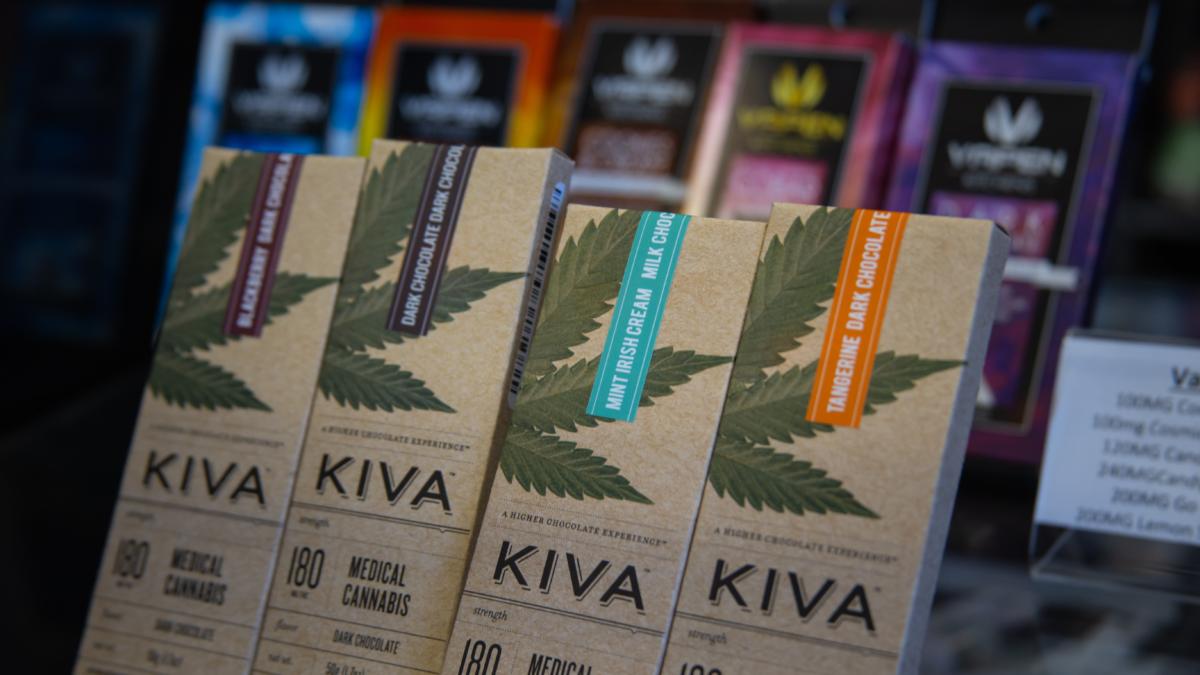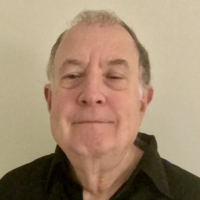It may not rank with the likes of July 4 and Thanksgiving (at least not yet), but when it comes to secular observances, there’s no denying 4/20 is a thing.
For the few of you who may still be unfamiliar with the significance of April 20, it has, for several decades, been embraced by cannabis devotees across the country as the day to celebrate – to borrow from a “Reefer Madness”-era movie poster – the weed with roots in Hell.
There are several popular origin stories connected to this “high holiday,” but the most plausible is that it stems (sorry) from five California teens who, in the early 1970s, would meet daily on the grounds of their high school at 4:20 p.m., when most of the extracurricular activities were finished for the day, to share a joint or two. One of the stoners later landed a job as a roadie for Grateful Dead bassist Phil Lesh, and the use of the term subsequently caught on among the legion of “Deadheads.”
To mark the day – and with pot legalization in New Jersey already giving new meaning to the phrase “Garden State,” and Pennsylvania possibly inching its way toward sanctioning weed’s use and sale – it’s only fitting we take a look at Philadelphia’s surprisingly involved history with the plant.
So twist one up and hop on the “cannabus” for a look at what might be called “Weedadelphia.”
Blame it on Billy
It turns out that, technically, there has been marijuana in Philadelphia pretty much as long as there’s been a Philadelphia.
Religious freedom may have motivated William Penn to establish his New World colony, but the guy who today keeps an eye on his turf from atop City Hall was also a capitalist who greatly valued hemp, the cannabis-derived substance that for more than a century was ubiquitous in American industry as a source material for rope, clothing and numerous other items, from parchment to sails (it does not get you high). As such, he encouraged farmers from a region in Germany who were experts in growing it to settle in what would ultimately be called Pennsylvania. And according to the Facebook page of the Keystone Cannabis Coalition, one of the first measures passed by the Pennsylvania General Assembly was “An act for the encouraging of raising hemp in Pennsylvania.” The body subsequently codified hemp as currency valued at four pence per pound.
Alas, there is no proof that Penn ever used the plant for expanding his mind in addition to using it to expand his bottom line.
Founding fathers: Fact or fiction?
It’s generally acknowledged that George Washington, Thomas Jefferson and others who gathered at Fifth and Chestnut streets in the spring and summer of 1776 to forge a new nation were hemp farmers. And it’s certainly cool to imagine George, Tom and other delegates, after a long day of debating independence, availing themselves of some herbal refreshments before retiring for an evening of food, drink and bawdy jokes at the City Tavern. But those mellow-harshers known as historians seem to be in agreement that, at the very least, there is no record of the Founding Fathers enjoying the psychotropic benefits of their crops.
Overall, that’s not hard to accept. But one might be a little skeptical concerning Philly’s phavorite phounding phather, Ben Franklin.
While there appears to be no credible evidence that the Benster ever copped a buzz, it certainly wouldn’t be surprising if he had: After all, his is a reputation as someone with more than a passing acquaintance with a variety of hedonistic pursuits, and he is venerated for having an almost-supernatural scientific and intellectual curiosity. In addition, he owned a company that made paper from hemp, so he was hardly unfamiliar with cannabis.
As such, it seems a bit illogical that he would have abstained. On the other hand, who knows? His apparent apathy toward smoking pot may have been the product of a preference for opium, a popular mind-altering substance of the era, or even nitrous oxide, which was first synthesized in 1772 by chemist Joseph Priestly, a London friend of Franklin’s with numerous Philly connections.
Hashing out a place in history
Of all the Philadelphia-cannabis connections, this has to be the hippest – and most difficult around which to wrap one’s brain: North America was introduced to hashish at, of all locations, the Parkside section of Fairmount Park.
Hashish – or as it’s usually called, “hash” – is marijuana’s much stronger sibling. A highly concentrated form of cannabis, hash’s origins date back to the late-900s/early-1000s (A.D.) in the Middle East: The word “assassin” is widely believed to be derived from “hashish,” as the drug was provided to ancient warriors to prepare them for their murderous missions.
In 1876, there was no legal prohibition against the consumption of cannabis, which is why that year’s Centennial Exposition, the grandest international soiree the city has ever thrown, warmly welcomed the contribution of Turkey’s Sultan Abdul Hamid: The Turkish pavilion was a hangout at which visitors could smoke hash in a relaxed, exotic setting.
Such was the pavilion’s popularity that it spawned a new industry which, for a period of time, enjoyed widespread popularity: Cafes that catered to those who enjoyed smoking or eating hash. That concept may have ultimately faded from view, but hash certainly didn’t (suffice it to say it was, the most common form of weed at a certain Philly high school in the early 1970s).
And to think it all started in the vicinity of 52nd Street and Parkside Avenue.
A full Spectrum of potheads
Philadelphia has had its tokers through the decades, but they tended to be relatively few in number and centered in minority and lower-class communities. Weed – or “Mezz” as it was known in those circles after New York-based-clarinetist-turned-pot-dealer-to-the-stars Milton “Mezz” Mezzrow – was also part and parcel of the local jazz world. But the Baby Boomer-fueled social upheaval of the 1960s brought marijuana to the white middle-class. And nowhere was that more evident than at the rock concerts staged at several local venues from the late 1960s well into the ’70s and beyond.
Foremost among them was the now-legendary Spectrum, the sports arena that opened in 1967 on the site that today houses the Xfinity Live! entertainment complex.
It’s unlikely this was actually the case, but it certainly seemed at the time that everyone who attended shows at the long-gone South Philly auditorium was sparking up as they grooved to the likes of Led Zeppelin, Jethro Tull, The Who and Yes.
Decades later, Roger Barone, who as a member of the Spectrum stage crew from 1973-’78 attended scores of shows, still remembers weed’s overwhelming presence at the concerts.
“Easily the most memorable marijuana moment was the cloud that hovered over the floor seats filling the lower level of the arena,” recalls Barone, whose many concert photos can be seen on “The Philadelphia Spectrum – A Tribute to Classic Rock Concerts,” the 7,000-plus-member Facebook page he created.
“It was as much a part of the show as the band was, especially because it allowed those ‘Super Trooper’ spotlights to be seen through the haze [like] light beams from Heaven.”
One small step for stonerkind
That whirring sound that was heard throughout the city on Sept. 14, 2014, was no doubt caused by the vociferous anti-drug warrior Frank Rizzo spinning in his grave. That was the day Philadelphia decriminalized possession of 30 grams (a little more than an ounce) or less of pot, reducing it to a civil violation punishable by a $25 fine.
Then-Mayor Michael Nutter signed the bill – whose passage was spearheaded by current Mayor (and then-councilman) Jim Kenney – with a heaping helping of regret. According to the Inquirer’s account of the signing, Nutter made sure to get on the record that he didn’t condone getting high and that he considered it a “poor personal choice.” A little more than five years later, Nutter joined the New Jersey-based medical-marijuana producer, Green Leaf Medical, as a senior advisor and consultant.
Citing official arrest records, a February 2020 report in the Inky noted that the number of weed busts in the city declined from 2,887 in 2014 to 858 in 2015 to 621 in 2018.
Busted!
The change in policy certainly benefited at least one prominent citizen.
In October 2016, one-time-mayoral-candidate-turned-documentarian Sam Katz was caught with a small-but-unspecified amount of grass at Philadelphia International Airport prior to boarding a flight to Florida. Thanks to decriminalization, the most severe consequences he faced were missing his plane and the likely humiliation the bust created for him when news of the incident – which included him being handcuffed by Philadelphia police according to Philly Voice – hit local media.
Katz admitted to the website that carrying the reefer in his suitcase (he said he was unaware it was there) was “dumb.”
Good medicine
Another advance occurred in April 2016 when Pennsylvania Gov. Tom Wolf signed medical marijuana into law. It took 22 months for the first dispensaries to open. When they did, 17 conditions, including autism, cancer and HIV/AIDS were covered. Today, 23 conditions qualify state residents for medicinal weed. Currently, Philadelphia, has 13 licensed dispensaries.
Let my people blaze!
In Philadelphia, the position of lead guide to the promised land of full legalization has long been filled by N.A. Poe.
Poe (real name: Richard Tamaccio Jr.) has been described as a weed activist, comic and muti-media artist. He is also the owner of Poe’s Sandwich Joint in North Philly. For years, he has agitated for legalization, primarily in the form of organizing public puffing events at such locations as City Hall and Independence Hall.
In April 2017, Poe was arrested for organizing a massive pot party that included sales at a South Philly warehouse. He ultimately pleaded guilty to possession with intent to deliver marijuana and conspiracy and was sentenced to four years probation, 100 hours of community service and a $2,500 fine.
Phinally?
With New Jersey and New York having approved recreational adult use, common sense suggests the Keystone State pretty much has no choice but to follow suit. Gov. Wolf, who once opposed it, is now championing the cause, and, in line with multiple national surveys, a poll conducted last month by Franklin & Marshall College showed 59 percent of Pennsylvanians favor state-sanctioned use of cannabis.
To that end, State Senators Dan Laughlin (R-Erie) and Sharif Street (D-Philadelphia) have introduced a legalization bill. However, because common sense and Harrisburg historically have been all but total strangers, nothing is guaranteed.
But given our city’s long and intimate relationship with marijuana, it’s probably only a matter of time before we’ll be welcoming visitors to “Weedadelphia.”





